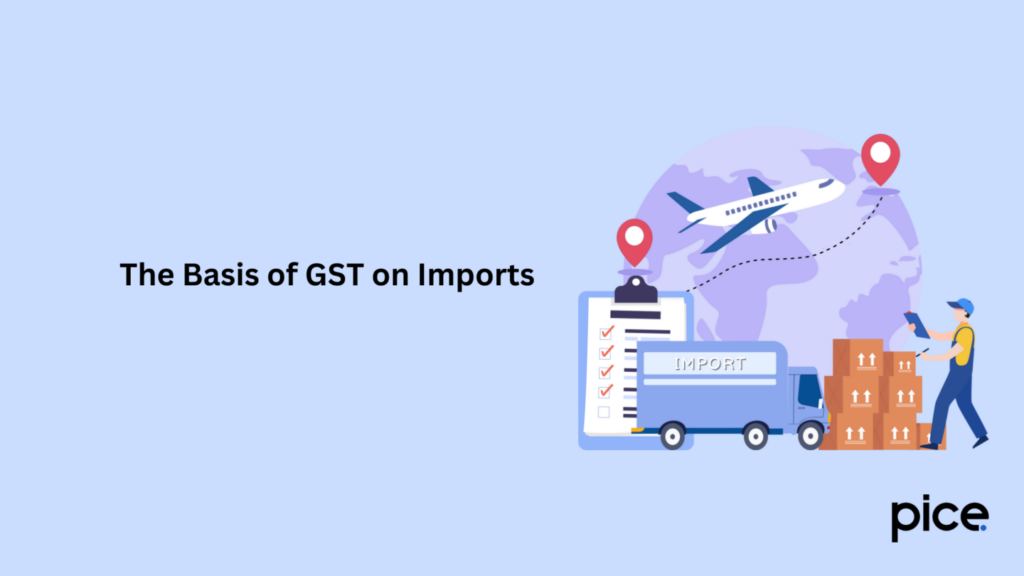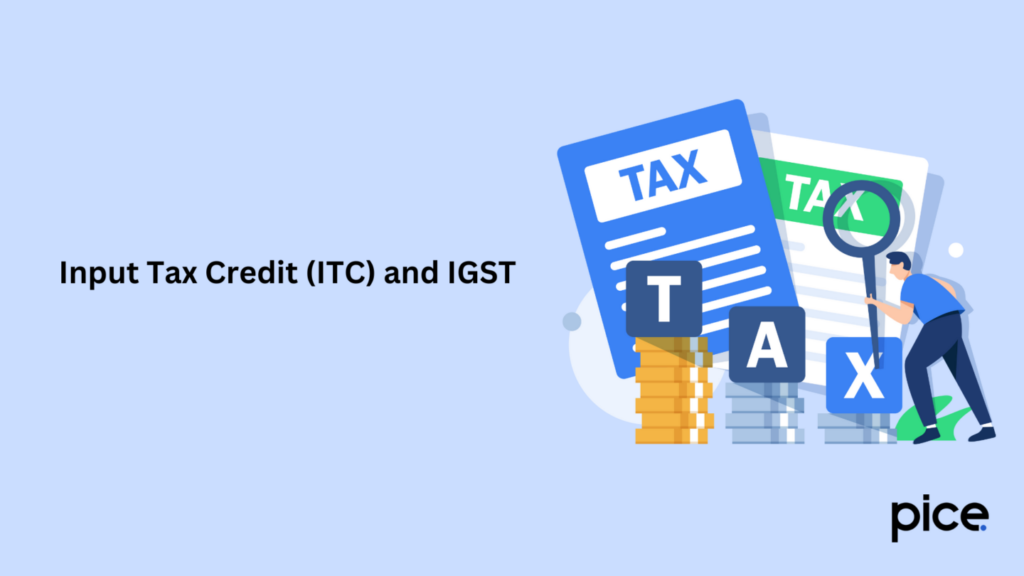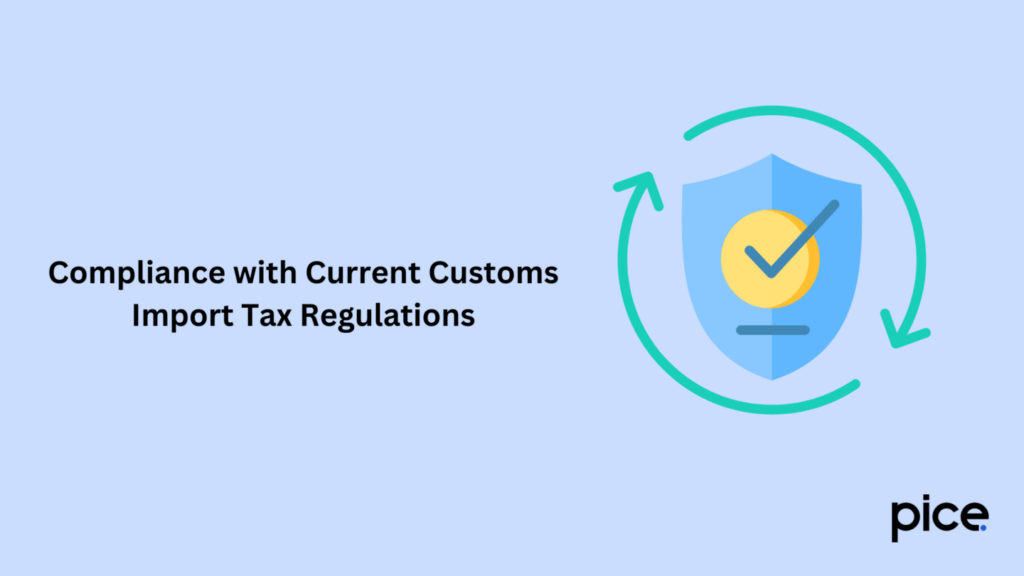Impact of GST on Imported Goods
- 20 Sep 24
- 8 mins

Impact of GST on Imported Goods
Key Takeaways
- IGST ensures uniform taxation of imported goods, aligning them with domestic products under the GST regime.
- Businesses can claim Input Tax Credit (ITC) on IGST paid at import, reducing their overall GST liability.
- GST Compensation Cess may apply to certain imports, in addition to IGST, to support state revenue.
- Government-issued exemption notifications can provide tax relief on specific imports, optimizing tax liabilities.
- Compliance with current customs import tax regulations, including IGST, is essential to avoid penalties and ensure smooth import operations.
The Goods and Services Tax (GST) has significantly restructured the tax system in India, impacting both domestic and international trade. When it comes to imports, GST plays a crucial role in determining the tax liabilities and compliance requirements for importers.
This comprehensive guide will cover everything you need to know about GST on Indian imports, including its basis, calculation, payment, and exemptions.
The Basis of GST on Imports

In India, the Goods and Services Tax (GST) has redefined the tax landscape for both domestic and international trade. When it comes to imports, the process is considered an inter-state supply under the GST regime. As a result, it attracts Integrated Goods and Services Tax (IGST).
The import of services under the GST regime is treated similarly to the import of goods, attracting IGST at the applicable rate. This tax is calculated based on the valuation principle, which includes the transaction value and any additional customs duties, as specified under current customs law.
Importers may also benefit from duty exemptions or export-linked duty exemption schemes that reduce the tax burden. The GST rate applied to these imports must align with the integrated tax rate, ensuring consistency with the current customs import tariff.
Amount of GST on Imported Goods
The amount of GST on imported goods is primarily determined by the IGST rate applicable to the specific goods being imported. The IGST rates vary depending on the classification of goods under the Harmonized System of Nomenclature (HSN) code.
Additionally, certain imported goods may attract other taxes such as Basic Customs Duty (BCD) and GST Compensation Cess, which are also included in the calculation of IGST.
Calculating GST on Imports
To calculate GST on imports, the following formula is used:
IGST = (CIF value + Basic Customs Duty + Other customs duties) x IGST rate
For example, if you import goods with a CIF value of ₹1,00,000, and the applicable BCD is 10%, the customs duties and IGST will be calculated as follows:
- CIF value: ₹1,00,000
- Basic Customs Duty (10%): ₹10,000
- Other customs duties: ₹5,000
- Total taxable value for IGST: ₹1,15,000
- IGST (18%): ₹20,700
Thus, the total GST on the imported goods would be ₹20,700.
Paying GST for Imports
Uniform Taxation Across the Supply Chain
The imposition of IGST on imports is crucial in maintaining uniformity in the taxation of goods and services across India. This uniformity ensures that imported goods are subject to the same tax rates as domestically produced commodities, thereby preventing any market distortions that could arise from differential tax treatment.
The uniform tax structure under IGST also simplifies compliance for businesses, as they deal with a single tax system for both imports and domestic supplies.
Input Tax Credit (ITC) and IGST

For businesses, one of the significant advantages of the IGST framework is the ability to claim Input Tax Credit (ITC) on the IGST paid at the time of import. This ITC can be offset against their GST liability on subsequent sales of goods and services, ensuring that the tax burden does not cascade down the supply chain.
This seamless flow of input credits across the supply chain is a cornerstone of the GST system, promoting efficiency and reducing the overall tax incidence on consumers.
GST Compensation Cess and IGST
In certain cases, goods imported into India may also attract GST Compensation Cess in addition to IGST. This cess is levied on specific commodities to compensate states for any potential revenue loss due to the implementation of GST.
The GST Compensation Cess is applicable on the supply of goods and services, including imports, and the amount collected is used by the central government to distribute compensation to states. This ensures that states do not face a revenue shortfall due to the new tax regime.
Government Notifications and Exemptions
The government periodically issues exemption notifications under the GST regime, which may include exemptions or reductions in IGST on certain imports. These notifications are crucial for businesses as they provide relief from the standard tax rates, depending on the nature of the goods and the purpose of import. Staying updated with these exemption notifications can help businesses optimize their tax liabilities.
Interaction with Other Indirect Taxes
IGST is part of the broader indirect tax regime in India, which includes other taxes such as customs duties, service tax (which has now been subsumed under GST), and the GST Compensation Cess.
The interplay between these taxes is critical for importers, as the total tax liability on imported goods is determined by the cumulative effect of these taxes. Understanding the interaction between IGST and other indirect taxes is essential for accurate tax planning and compliance.
Impact on Outward Supplies
The IGST paid on imports also impacts the pricing of outward supplies. Businesses must account for the IGST paid as part of their cost structure when determining the pricing of goods sold in the domestic market. However, the availability of ITC on IGST helps mitigate this impact, allowing businesses to maintain competitive pricing for their products.
Credit on Import and Customs Tariffs
IGST on imports is closely linked with customs tariffs. The IGST is calculated based on the customs value of the goods, which includes the Basic Customs Duty (BCD) and other applicable charges. The credit on import of IGST can be availed by businesses, ensuring that the tax paid at the border does not become a cost burden. This credit mechanism is crucial for maintaining the competitiveness of imported goods in the domestic market.
Compliance with Current Customs Import Tax Regulations

Importers must comply with current customs import tax regulations, including the timely payment of IGST and other applicable duties. Non-compliance can lead to penalties and interest charges, making it essential for businesses to stay informed about the latest customs laws and GST regulations.
Regular updates from the government and the Central Board of Indirect Taxes and Customs (CBIC) help businesses stay compliant and avoid any legal complications.
Compliance with these regulations is essential for businesses to navigate the complexities of the importer's business environment, including the handling of import documents and bills, while managing the implications for imports and overall tax liabilities.
Conclusion
IGST plays a vital role in ensuring fair and uniform taxation of imports in India. By enabling the seamless flow of Input Tax Credit, it reduces the tax burden across the supply chain and supports the competitiveness of businesses.
Understanding the intricacies of IGST, including its interaction with other indirect taxes, exemptions, and compliance requirements, is crucial for importers to navigate the complexities of international trade under the GST regime.
💡If you want to streamline your payment and make GST payments, consider using the PICE App. Explore the PICE App today and take your export business to new heights.
 By
By 

















